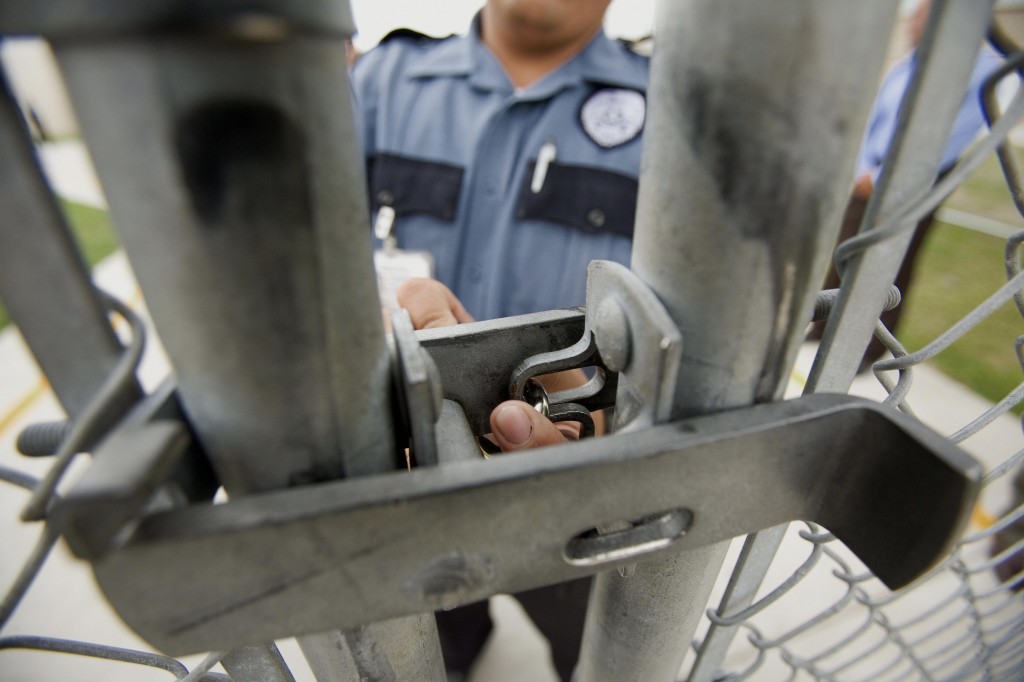
A guard locks a gate inside Homeland Security’s Willacy Detention Center, a facility with 10 giant tents that can house up to 2000 detained illegal immigrants (Photo Credit: Amnesty International USA).
On March 25, 2013, the New York Times published an article about the use, and overuse, of solitary confinement in immigration detention. It reported that 300 individuals are held in solitary confinement while awaiting resolution of their immigration cases, including one individual who was held for four months because of his sexual orientation.
Much like the issue raised by Congressman Spencer Bachus of Alabama at the House Judiciary Committee hearing on immigration detention on March 19th, the real question is why are these individuals even detained in the first place?
As Amnesty International documented in its report in 2009, Jailed Without Justice: Immigration Detention in the USA, individuals, including lawful permanent residents with long-standing ties to the U.S. and asylum seekers, are needlessly locked up in state and local jails and prisons for the sole purpose of appearing at immigration hearings, often without a hearing to determine whether they are a danger to the community or a flight risk.



